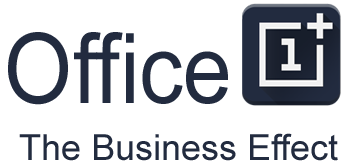Working with a recruitment agency offers businesses of any type and size a variety of benefits. By working with a trusted recruitment agency, you will have access to more qualified candidates.
The whole hiring process will be streamlined as well thereby allowing you to save time and money. Lastly, by working with job consultants, you can also get advice about different aspects of recruitment and HR.
Working With a Recruitment Agency
Having a smooth, efficient working relationship with your recruitment agency is crucial to getting the most out of this partnership.
Here are five tips will help you foster a productive and mutually beneficial relationship with your recruitment agency:
- Be as detailed and complete as possible
As soon as you have a vacancy, prepare a brief about what you are looking for. Your recruitment partner needs as much information as possible to find the most suitable candidates for this role.
Aside from giving your recruiter a detailed job description, make sure you include in your brief the following items:
- Required education level
- Any specific training or license the applicant should have
- Years of relevant experience
- Technical skills
- Additional skills the ideal applicant should have (English language proficiency, typing skills, etc.)
- Communicate regularly
Constant communication is crucial if you need to fill a position immediately. By coordinating with your recruiter regularly regarding interview schedules and results, you will be able to hire a new employee within your expected timeframe or even quicker.
Talking with your recruiter and responding to his or her emails promptly will also prevent any miscommunication from coming up which can affect the whole recruitment process.
Even if you are not looking for new employees, maintaining communication with your recruitment partner will also help you in various ways.
You can ask for their expert advice if you have any problems regarding your own recruitment campaigns. They can also recommend top talent who can become valuable assets to your company even if you are not currently looking for new employees.
- Go over all documents you receive from the recruiter
Once you start working with your recruiter, you will start receiving qualified applicant summaries and resumes. Take the time to read all these documents.
Reading a candidate’s summary will help you understand what his or her skill set could mean to your company. It will also help you come up with questions you want to ask during the interview that will help you determine if the applicant will be a good fit for your firm.
Don’t simply scan them and say a candidate is not qualified if you just read the first page of his or her resume. Keep in mind that if your recruiter recommended this candidate, there is a good reason.
- Be open-minded
Recruiters will use the list of qualifications and skills they are given to search for the most qualified candidates to send you. However, there will be instances wherein they will send applicants that lack certain skills or do not have any prior relevant experience.
In such instances, don’t be too quick to dismiss such candidates. Although these applicants may not meet all your requirements, your recruiter may have already worked with them before and thus, knows them very well. These candidates usually have the right motivation to work and, as such, with proper training and talent development techniques, they will prove to be assets to your company.
For example, if your company has specified that you need a professional food photographer with no less than ten years of experience, but you find one shortlisted candidate with only six years of experience on her resume, you need to check with your recruiter.
Having honest discussions with your recruiter will help you understand why he or she forwarded a candidate you may have misgivings about. Listen to his or her reasons and give the applicant a second check.
- Take into account any feedback or comments the recruiter shares
The best recruiters will talk to their candidates after an interview or the recruitment process. They will then share this information with you.
As an employer, you have to understand that all feedback, both positive and negative, is important to help you improve the hiring process. If a candidate feels that the interview was too short, don’t take this as an insult. Take it into account so that you will conduct better, unbiased interviews in the future.
Keep in mind that your recruiter is trying to help you find the ideal candidate who will fit into your company culture and play an important role in meeting all your business goals. As such, your recruiter will also give you advice and tips which you would do well to accept and follow.
Although you are paying your recruitment agency to fill in your vacancies, do not expect them to do all the work. You need to do your part as well and keep in mind that a collaborative approach will allow you to get more out of your partnership.
AUTHOR BIO
David Mackenzie
A recruitment professional with over twenty years’ experience in the field and a record of entrepreneurial accomplishment, David is Managing Director and Head of HR at Mackenzie Jones.
In 2003, David set up Mackenzie Jones in the UK, growing the business across two offices in London and Birmingham. In 2005 David established Mackenzie Jones in Dubai to serve the Gulf region and neighbouring countries. As the Group MD, David is responsible for the overall direction of the Mackenzie Jones Group including Mackenzie Jones, MumsAtWork, MENA Solutions, Simply Digital and ThinkTech.

